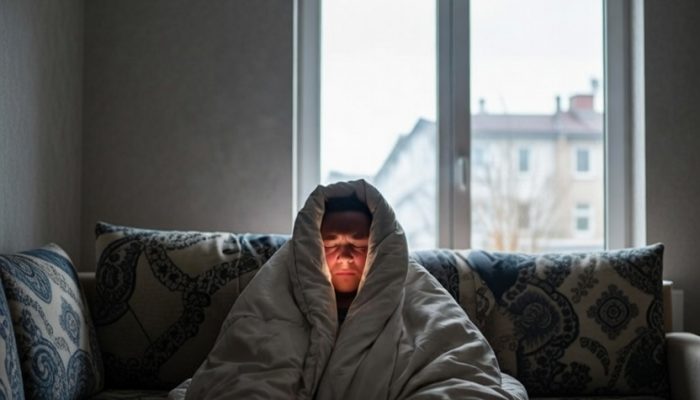I’m not a doctor, but I can try to provide some information and suggestions that may help you with sleep difficulties. There could be various reasons why you’re struggling to fall asleep, and it’s important to note that individual experiences may vary. Here are a few factors that can affect sleep:
- Stress and anxiety: Worries, racing thoughts, or a generally anxious mind can make it difficult to relax and fall asleep.
- Poor sleep habits: Irregular sleep schedule, excessive daytime napping, consuming stimulating substances like caffeine or nicotine close to bedtime, or engaging in stimulating activities before bed can disrupt your sleep.
- Environmental factors: An uncomfortable sleep environment, such as noise, light, or an unsupportive mattress, can interfere with falling asleep.
- Medical conditions: Certain medical conditions, such as chronic pain, sleep disorders (e.g., insomnia, sleep apnea), or mental health conditions, may contribute to sleep difficulties.
To improve your sleep, consider trying the following tips:
- Establish a consistent sleep routine: Go to bed and wake up at the same time every day, even on weekends.
- Create a sleep-friendly environment: Make sure your bedroom is cool, dark, quiet, and comfortable. Consider using earplugs, eye shades, or a white noise machine if necessary.
- Relaxation techniques: Practice relaxation techniques like deep breathing, meditation, or progressive muscle relaxation before bed to calm your mind and body.
- Limit stimulating activities: Avoid electronic devices (phones, tablets, computers) for at least an hour before bed, as the blue light emitted can disrupt your sleep.
- Avoid stimulating substances: Reduce or eliminate caffeine and nicotine intake, particularly close to bedtime.
- Manage stress: Find healthy ways to manage stress during the day, such as exercise, journaling, or talking to a friend.
Sleep is an essential part of a child’s growth and development, but what happens when a child is unable to sleep through the night? There can be several reasons why a child might suffer from sleeplessness, and being a late delivery baby is one of them.
A late delivery baby is one who is born after the 42nd week of gestation. These babies often experience a range of physical and developmental challenges that can affect their overall health. One of the common challenges that late delivery babies face is sleeplessness.
Sleeplessness can manifest in several ways, from difficulty falling asleep to waking up frequently throughout the night. Children who suffer from sleeplessness may experience a range of negative consequences, including fatigue, irritability, and difficulty concentrating during the day.
Homeopathy offers a natural and safe solution to help children who suffer from sleeplessness. Homeopathy is a holistic approach to health that treats the whole person, rather than just the symptoms. By addressing the underlying cause of sleeplessness, homeopathy can help children get the restful sleep they need to grow and develop properly.
Homeopathic remedies for sleeplessness in late delivery babies vary depending on the specific symptoms and causes of the sleeplessness. Some common remedies include Chamomilla, which is particularly helpful for children who are irritable and restless, and Coffea, which is useful for children who are overstimulated and unable to relax.
Other remedies that may be beneficial for sleeplessness in late delivery babies include Nux Vomica, Pulsatilla, and Ignatia. It is essential to consult with a qualified homeopath to determine the best remedy for your child’s specific needs.
In conclusion, sleeplessness in late delivery babies can be a challenging issue for parents and children alike. However, homeopathy offers a natural and safe solution to help children get the restful sleep they need to thrive. By working with a qualified homeopath and making simple lifestyle changes, parents can help their child get the restful sleep they need to grow and develop properly.
Helping a child overcome “fear” of going to sleep
- Create a bedtime routine: Establishing a consistent and relaxing routine before bed can help signal to the child’s brain that it’s time to wind down and prepare for sleep. This routine could include activities like reading a book, taking a warm bath, or listening to calming music.
- Provide a comforting environment: Make sure the child’s bedroom is a comfortable and inviting space. Let them choose their favorite stuffed animal or blanket to sleep with for added comfort and security. Consider using a nightlight if they are afraid of the dark.
- Address their fears: Talk to the child about their fears and try to understand where they’re coming from. Encourage them to express their concerns and reassure them that they are safe. You can also use age-appropriate books or stories to address specific fears, such as books about overcoming night time worries.
- Validate their feelings: Let the child know that it’s okay to feel scared sometimes and that many children their age, also experience similar fears. Reassure them that their feelings are valid and offer support and understanding.
- Teach relaxation techniques: Teach the child some simple relaxation techniques they can use when they feel anxious or scared. Deep breathing exercises, visualization, or progressive muscle relaxation can help calm their mind and body before sleep.
- Offer a transitional object: If the child has a particular fear or worry, you could suggest they write it down on a piece of paper or draw a picture. Then, place it in a designated “worry box” or “worry jar” in their room. This can help the child feel like they are letting go of their fears and that they can deal with them in the morning.
Lastly be patient and supportive: It’s important to be patient with the child as they work through their fear. Offer encouragement, praise their efforts, and provide extra support as needed. Let them know that you’re there for them and that they can always talk to you about their concerns. Talk to a Homeopath for further advice, get help finding the route cause.




